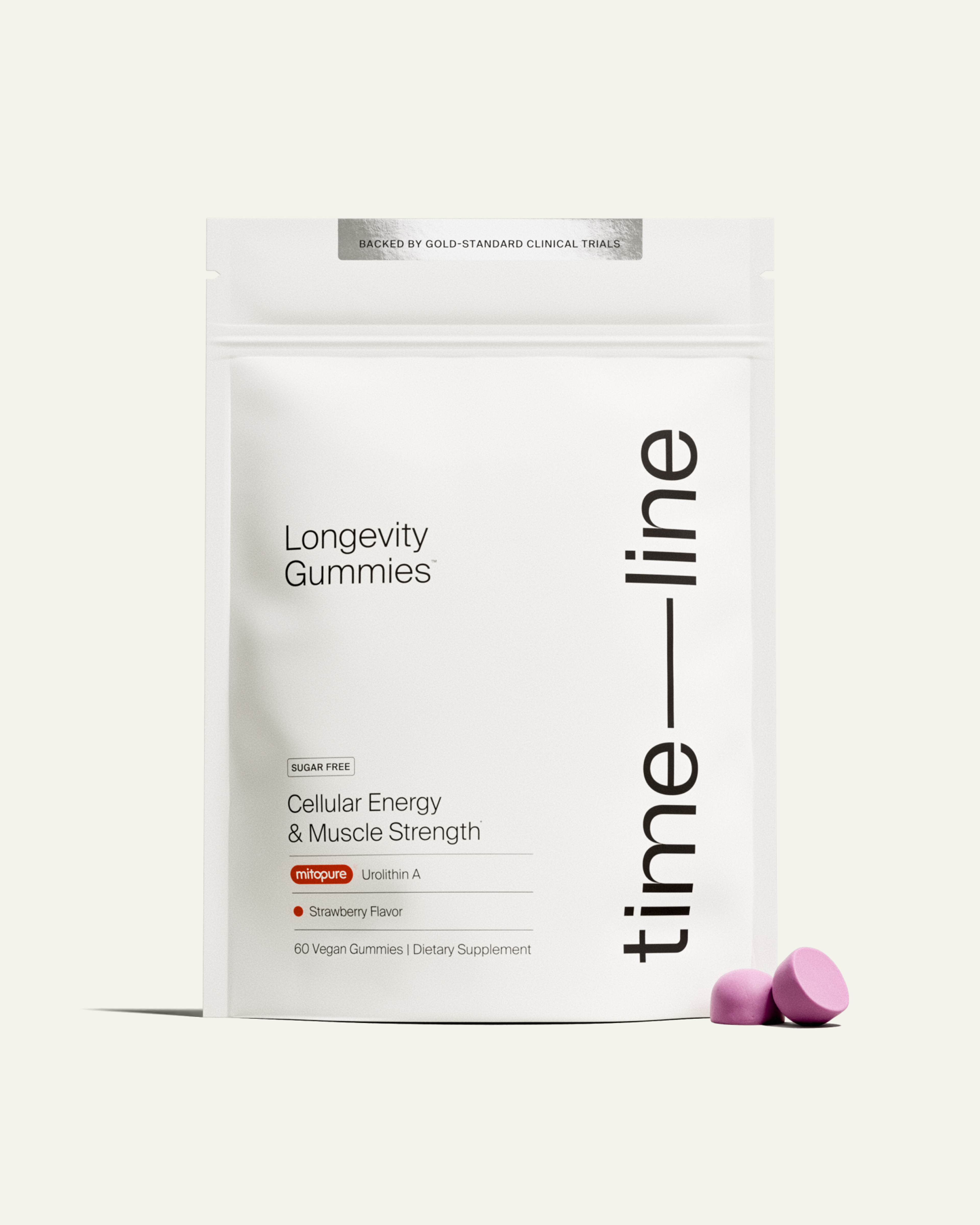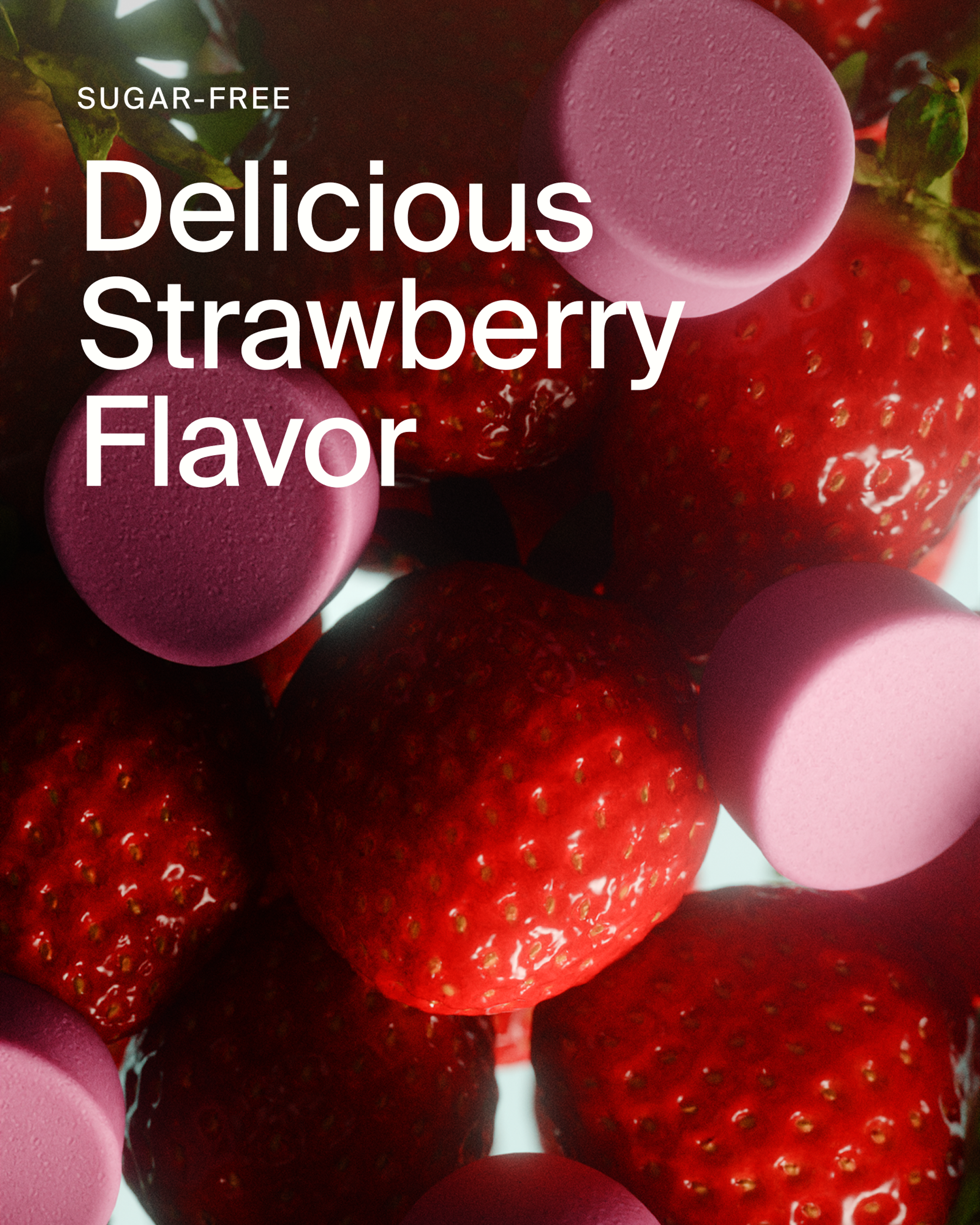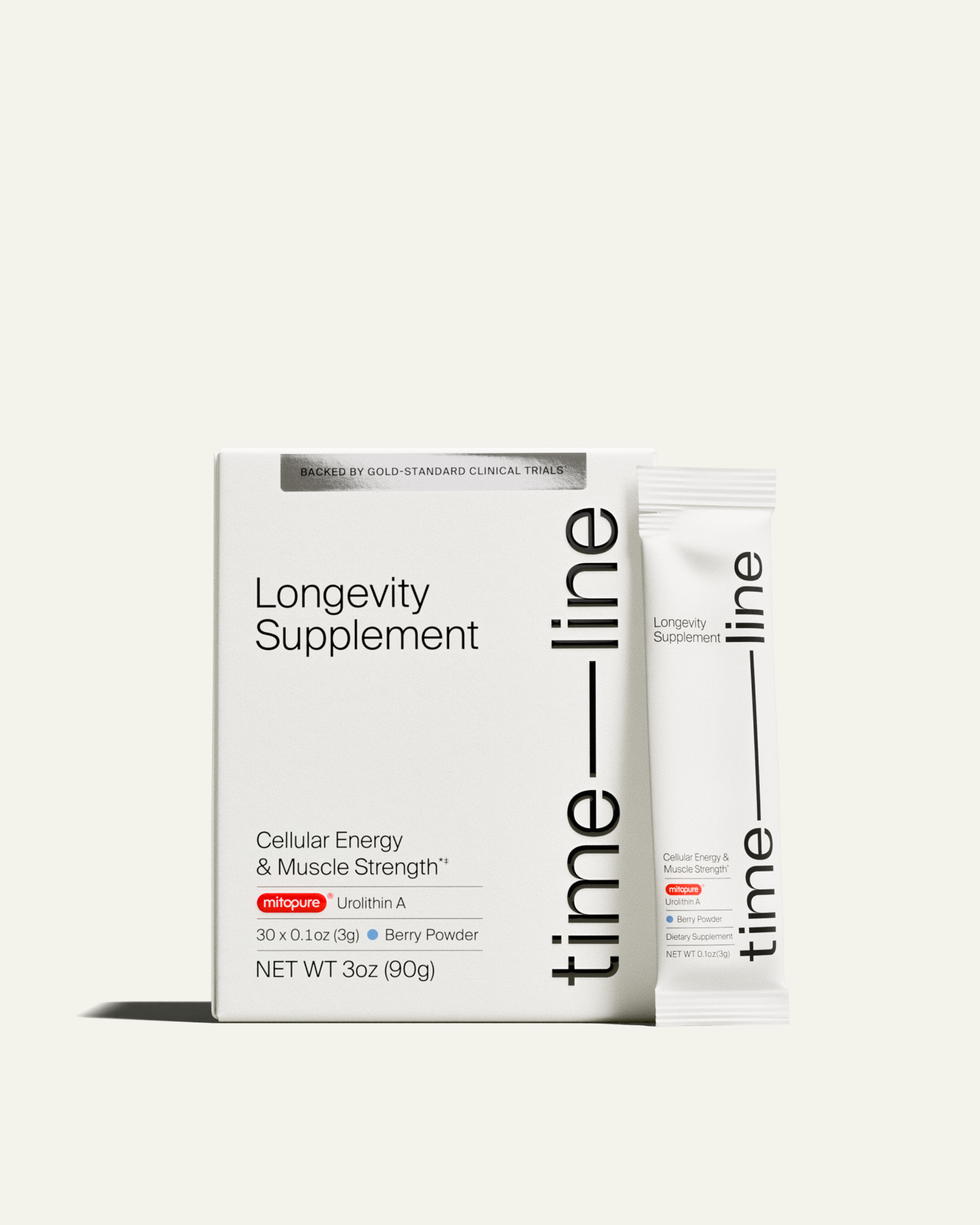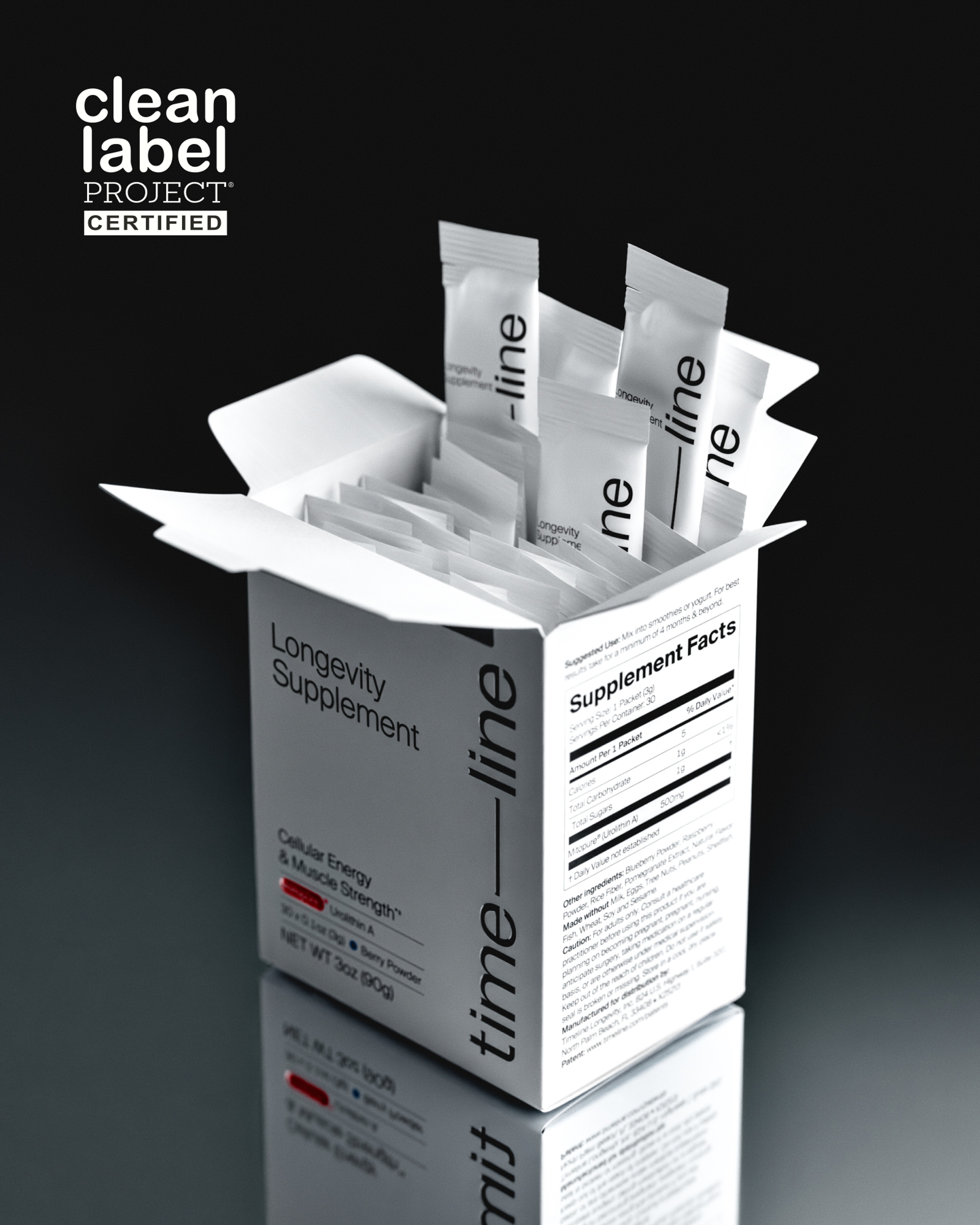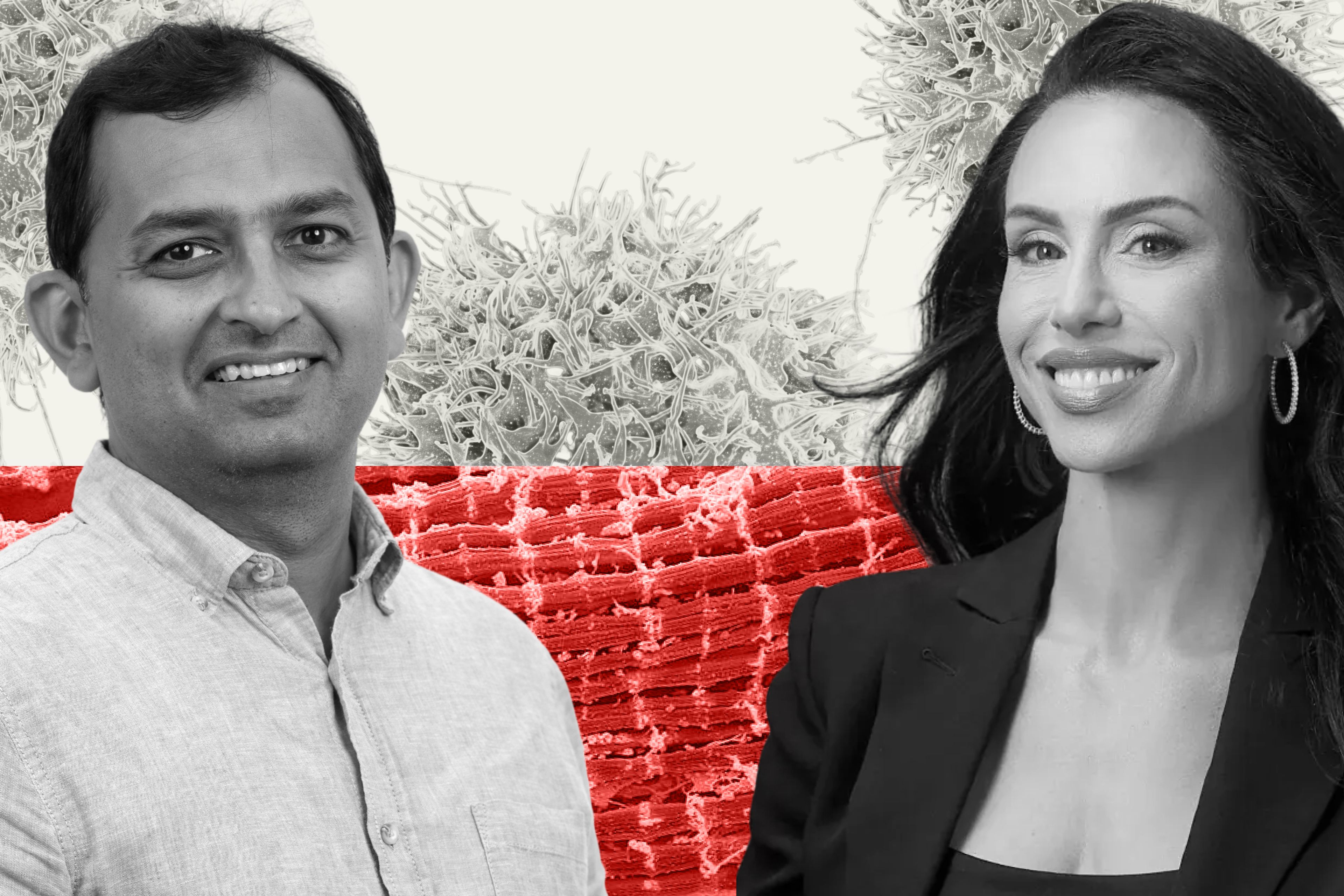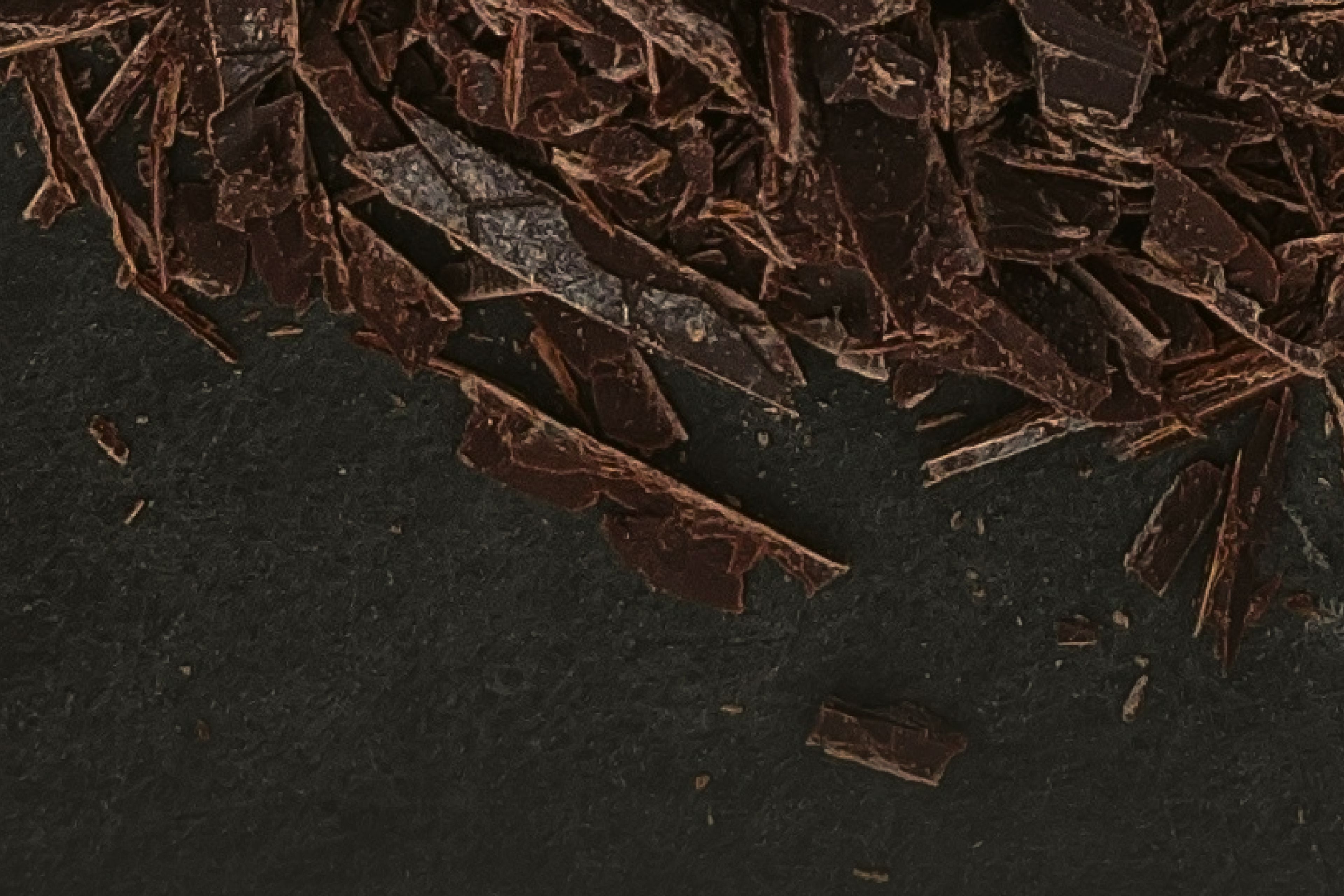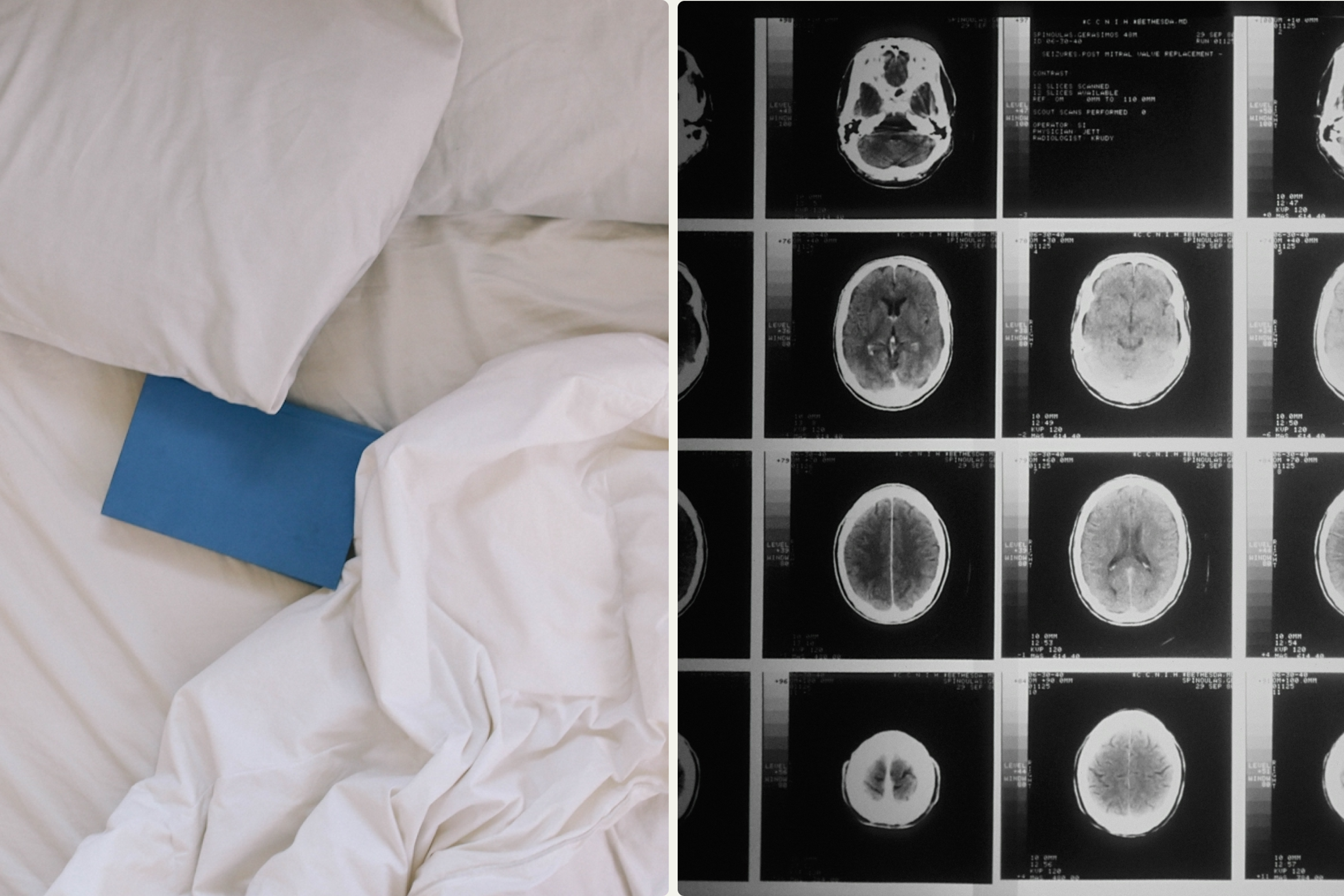Enjoying Youthful Vitality As We Age. Prof. Johan Auwerx
LLAMA podcast host Peter Bowes interviews Prof. Johan Auwerx about enjoying youthful vitality as we age and his research on Urolithin A.

Eventually, we will all face the challenges that come with old age. We will have less strength and energy than we once had. But what if it were possible to rekindle the drive and physical endurance of youth as we grow older? Prof. Auwerx’s peer-reviewed research, including joint studies with the Swiss life science company, Amazentis, has been published in leading scientific journals. In this LLAMA podcast interview, with Peter Bowes, Prof. Auwerx, discusses the critical need for an affordable solution to ensuring a long and healthy life; how a highly pure form of Urolithin A, known as Mitopure, could be the key to improving our cellular health and strength as we age; and the simple steps we can take to mitigate health issues later in life.
Transcript
- Speaker 1
- It is an exciting time to be a longevity scientist because it is a field which has blossomed ever would be a lifespan research. I'm not interested in living to 100 and I don't think there's any point of doing that. But now it became clear that we can work on this. Huntsberry.
- Speaker 2
- Hello and welcome to the Live Long and Most Ageing podcast. I'm Peter. This is where we explore the science and stories behind human longevity. This episode is brought to you in association with Amazon Artists, a Swiss life science company that's pioneering, cutting edge, clinically validated cellular nutrition under its timeline brand. Now, longevity research often starts with experiments involving worms, nematode worms, which are considered to be one of the best models for ageing research. C. elegans has a short lifespan, making it easy to work with, and many of its genetic and molecular pathways are the same as in human beings.
- Speaker 2
- And that's why these little worms are so valuable in our understanding of the mechanisms involved with the diseases or conditions of old age like diabetes, frailty and obesity. Well, to talk about that and other aspects of his work, I'm delighted to be joined by Dr. John Overworks, a professor at the Acall Polytechnique Federale in Lausanne, Switzerland, the EPP F.L., where he directs the Laboratory for Integrated and Systems Physiology. Dr Works is also a scientific adviser to Ascendis, a longevity researcher.
- Speaker 2
- He has much experience working with worms and other organisms to better understand the ageing process and perhaps how we can slow it down. Professor, welcome to the Live Long and Most Ageing podcast.
- Speaker 1
- Hello, nice to meet you.
- Speaker 2
- Yeah, very good to meet you. You are in Switzerland, home on the west coast of the United States. There's no chance of you and I are seeing each other in person at the moment or indeed in the near future. So we're doing this remotely. I'm just curious how you are coping during these troubled times, although it has been tough because the lab has the first been shut down and then the lab has been opened again, working with reduce the number of people.
- Speaker 2
- But that's you know, that's where we're doing the best that we can. And actually, this goal with grazes actually was actually relevant scientifically for us, because one of the things we discovered crisis. When people stay home, they don't move much. And so there is a quite big impact on muscle mass and muscle loss because people don't have their regular exercise, they don't have their regular movement. And especially in countries where confinement was very important, such as Italy or France, where you were not allowed out of home.
- Speaker 2
- So people actually lose muscle. They exercise about 40 to 50 percent less than normal. And for a certain part of our population, that could be problematic, especially if you get disease.
- Speaker 2
- So I guess that's in a way mimicking perhaps for younger people what older people actually experience during normal times through through totally true, because you see normal people, older people, they move less, which is a feature. If you look at a young term or an old worm, you immediately see the difference because the worm moves much more. And this is the same with people, you know, once you're past 70. Many of us will be reduced to going from the couch to the television set and eating lunch and dinner.
- Speaker 2
- And so this movement is reduced. And now you see this in younger people because they were confined to their homes. And this has an immediate impact on muscle mass and even muscle function. So they don't recover. You never recover the muscle which you lose. And even in young people, this can lead to major impact on physical activity as interesting.
- Speaker 2
- And it's maybe a side effect, a long term side effect of this disease that clearly a lot of people won't have thought about. And it does raise many issues, doesn't it, about how we live our lives during normal times and the importance of strong muscles?
- Speaker 1
- Yeah. And you start realising that if you ever have broken a leg or have been immobilised in a cast, you see how long you know, usually the gas being in the gas is not the problem. The problem is that afterwards you have six weeks, three months, six months, six months of revalidation. And that's where you try to recover the muscle. And every time you lose muscle, you won't recover fully. And that's the problem with the ageing population, obviously, because they are losing muscle mass to the point they become sarcopenia and eventually frail.
- Speaker 1
- And this is the main reason is one of the people don't realise. But losing mobility is one of the main reasons why you why ageing is not good for you, because you lose social contact, you lose mobility, you lose independent. And it's very important that people keep moving and maintain this capacity to move and one of the other aspects of this disease, I think that in terms of highlighting issues with our health and that is more generally underlying conditions, because I think we we know now that those people with with serious diseases, whether it is diabetes or heart disease or other conditions, do seem to be more susceptible to this virus.
- Speaker 1
- And it does highlight, doesn't it, the importance of of just generally looking after ourselves, to making sure that we are in the best condition possible to be able to confront a virus like this now? Very true, because one thing which you don't imagine most people who die of because it's you know, respiration is important, respiration is muscle function. When you respire, it's your diaphragm and your muscles of your Torex would keep going if you get sick of it.
- Speaker 1
- Infection in an older person, which has lost a number, a significant number of its muscle mass, you see, then you're in worse shape. And there's also a whole ditherer comorbidities impact on the disease. So the good the better you start off, the better you will cope with it.
- Speaker 2
- So let's before we delve into your science and your work, maybe just talk a little bit about your career. If you could give me a little bit of a potted history as to the kind of work that you've been doing it and how you started and what inspired you to do this kind of work.
- Speaker 1
- So I'm medically trained, so I'm a medical doctor. I'm actually a registered endocrinologist. And I started off by being interested in obesity and metabolic diseases that a post-doctoral fellowship in University of Washington, where I worked in the Department of Medical Genetics and also the Division of Metabolism and Endocrinology. Then I returned into set up my own lab when I came back in France and spent actually most of my career working in France for the Institute Pasteur. And then later on in the IG, BMC and Strasbourg Fer's as a senior researcher, a staff research and leader, is a professor of medicine and biochemistry.
- Speaker 1
- Until recently, 12 years ago, not so recent anymore. I decided to move to Switzerland because I got the opportunity to take a superb job at the EPA, called it called Polytechnique Federale, which satisfied all my criteria because it was a good environment. So it certainly is a very supportive of researcher researchers. It's got funding. So I decided to move to Toronto and that's where I'm stuck and moving from being a medical doctor and the disciplines that that involves to more of a researcher.
- Speaker 1
- I am often curious as to what the mindset is there that makes a scientist want to do that.
- Speaker 1
- You know, one of the things was I was a little bit for us. You know, I like being a medical doctor, but on the long term, it's it's like monotonous because as a diabetic ologist, you see diabetics and it's become a little bit less challenging everyday because you know, the field inside out. So I was wondering, where do I contribute to contribute most intriguing, like hundreds of diabetics and giving them a better life kerbing their symptoms?
- Speaker 1
- Or if I start doing applied research and all our research is like really medically oriented. So our lab is very, very translational. So that means we're seeing my my job as contributing to the medical world is instead of treating trying to develop and identify new ways to treat metabolic disease. And that's what has been the focus of my lab since the last 20, 30 years.
- Speaker 2
- And just to explain for our audience, when you say metabolic diseases, that can cover a lot, can't it, yet again?
- Speaker 1
- And this is also quite interesting. When I was starting my career at metabolic diseases was diabetes and hyperlipidaemia high lipid levels in the blood, high cholesterol. And now you see that this metabolism has become so essential in many aspects of our daily thinking about medicine and about biology. It's contributing to everything. Now we have neuro metabolism, immuno metabolism, cancer, metabolism, and the real hard core metabolism. Where I started working on it's now become almost a not a peripheral field, but just like one of many fields for metabolism has an impact.
- Speaker 1
- And I would say no, many of these fields where that where you see that actually the disease, the underlying causes are really metabolic like, for instance, why does a cancer cell grow better? Because it has a better way to exploit the metabolites around it, the nutrients that there's a better way to harvesting the energy so it can predominate in the surrounding normal cells. And the same with why do we get Alzheimer's? This probably because our energy supply to your brain cells becomes limiting at a certain time, and that predisposes you to all these involved in Alzheimer's, Parkinson's disease, all have a very big anchorage and in metabolic dysfunction.
- Speaker 2
- And much of your work has been based on understanding how our metabolisms are controlled. And that involves a lot. It involves diet and exercise and and hormones. It's a labyrinth, isn't it? It's a complex equation.
- Speaker 1
- Yeah, this is a complex equation. And hence also the name from my lab system's physiology, because I think physiology is controlled by many things. First of all, our genes, you know, physiology is different than every one because your genetic makeup is different, but also how we interact with the environment, what you eat, how you exercise, how your lifestyle is or your stressed person or not. And this is a very complex mixture. And so to identify or study that in humans is very difficult.
- Speaker 1
- That was also one of the reasons why I wanted to go to research, because no human is the same, no human is eating the same is exercising the same is having the same stress levels and different disease, muscle and animal models. You can much better mimic. You know, I can control my mouth that they eat exactly the same thing every day. They are exposed at the same light DWORACZYK of the same stress level. And that makes then that you accentuate and it's easier to find new things because they're not confounded by all these other factors which influence the outcome to phenotypes.
- Speaker 2
- And you say we are all all different, and that's increasingly obvious to us. I'm curious in terms of your work, what do you better understand now that perhaps can help us help people understand how we react in different ways to and is probably the most common one is how we react different ways to diets and how some diets fail, how some are successful. We respond positively to some food combinations and and not to others.
- Speaker 1
- Yeah, this is in a large extent is so the diet is an environmental factor and your diet will be different than my diet. So then we have the second very important factor is our gut microbiome, which digest and helps us digest, which is widely different between people or different nations or where you live, whether you eat a lot of seafood, etc.. Now we have our own obviously our own genetic makeup, which which is also very important, how you react to it, things like and it's not only your genetic makeup, it's also our time in, I would say our time in development.
- Speaker 1
- And I'm giving you a very easy example. If you are young and you become very quickly fat, like, for instance, a young boy who gets weighed on, that's extremely bad. If you're at the end stage of your life, let's say you're 88 and you're fat, you're going to be more protected. So the same thing gaining weight while being young is a risk factor, whereas a positive factor towards the end stages of your life. And so this makes it very complicated because there's another dimension that the longitudinal dimension, which is often neglected in many studies, and this you also only can almost mimic in animal models and in humans.
- Speaker 1
- It's very difficult to do this long term longitudinal studies and just talking about fact that that is because fat has many, many functions. And clearly those functions, as you say, according to our age, might vary in their importance according to the stage of life that we're in. And those side effects of being fat can clearly be very negative. And I think that's the one that most people understand and get that generally being overweight and especially tummy fat, stomach fat is not good for us.
- Speaker 1
- Yeah, I know. And like I say, so that's why dietary advice can almost not be universal. Because, you see, when I'm counselling this young kid who becomes obese and you say kerb your calories. When I go into this older person who's barely having enough energy to keep his muscle and the system functioning, I should say, take more protein, take more fat, take more glucose. And this is what often is neglected. So you have no universal dietary advice.
- Speaker 1
- And so the whole field of the microbiome complicated things even more for me. We ignore largely or microbiome. I don't know. There's only no studies coming out. Like, for instance, there is interesting food stuff we're working on, which is called Nory Nory is stable in Japanese food. It's the seaweed is the. Green thing around your sushi, you know, this is very healthy, but only if you're Japanese because you have eaten so much of the seafood that you have adapted the bacteria which can digest it, whereas if I or you would eat it, you wouldn't have the same health benefits.
- Speaker 2
- Interesting. A friend of mine, scientists in this country, in the United States has said to me in the past that, look, you said you come from Europe. I was born in northeast England. That kind of diet that people eat in England is what my body is used to. Therefore, changing to and adapting to a new diet won't necessarily be good for me and good for my body.
- Speaker 1
- Yeah, they're going out. When I was still a medical resident at the University of Washington, I spent time in Seattle. There was a big study where they were looking at Japanese living in Japan, Japanese living in Hawaii and Japanese living in the continental U.S. And you saw clear gradient because they were more and more exposed to the Western diet, high fat content. And I'm sure that every Japanese will react the same way. There are some people who deal well with and some not.
- Speaker 2
- And the fact that and as you've explained, there is no one diet that we can say is going to be good for everyone. And we've got a growing understanding of that. And of course, it does explain why there's a tremendous amount of confusion and frustration amongst people that they just don't understand what is going to be the best course of action for themselves. And it poses a challenge, I assume, for people like you and for me to explain the science and where we are and not to advise people, but just to to share those ideas in a way that they make sense to people, that people can then try to evaluate for themselves how to conduct their lives.
- Speaker 1
- And I know a good example was even the medical profession is sometimes not well informed advice where, you know, we I grew up in a time when eating fat was bad and you needed to go on a carb diet. If you grow up now, you would hear the opposite. That's because science evolves. And you know, what we knew at that time was letting them focus on one disease time. And so things change over course as we learn more.
- Speaker 2
- Well, I want to talk in some more detail now about worms, nematode worms. I mentioned your research with worms in the introduction as so many longevity scientists do because they are such a good model, as I explained briefly. But maybe you can explain it in better terms, in more detailed terms, why you work with these tiny organisms first.
- Speaker 1
- First reason is, A, they're genomically very similar. So they have the same genes, mainly the same genes as we do as the first reason be they're very easy to modify genetically. So if you want to knock out or introduce an overexpression of a gene, it takes days or not even hours for certain circumstances. If you use our we did a mouse takes like months. Third reason is that they are an excellent model for longevity because researchers are impatient as anyone.
- Speaker 1
- So if you would do a study on longevity study in animals mouse, it takes three years. If you do it in humans, you can do it. You need four generations. If you do a new worm, you can do it in a month. So I think the worm is an excellent all you need to know. It's capacity's, but also its limitations. So certain things are very well mimicked then the worm longevity, mitochondria mobility is very well mimicked.
- Speaker 1
- But I would say if I were if I'm in an ecologist, I would be interested in research and communications between organs where you require hormones in circulation. Then the world would be a poor, more like, for example, work on some genes in the heart. The worm doesn't have a heart, so you cannot mimic. So you need to know the benefits and the limitations. And most of our work is related to ageing and muscle function. They're excellent.
- Speaker 2
- And is it easy in terms of management in the laboratory to work with these creatures? I would assume it must be, since they so they are very tiny, that you need the scope for it. It's actually very easy. Believe it or not. Before I came to Lausanne, I never saw s.L again, so I hired a postdoc with the expertise. That's about twelve years ago and we set it up and no, my entire lab is working it, so it's very low cost.
- Speaker 2
- So it's compared to a mouse experiment. It's very fast. It's low cost, our advantage. And that's where we benefited when we got a few grants for 3R because they're invertebrates. So you're not confronted on all the animal authorisations. So so it makes life in one way easier. Because you don't have the ethical concerns which are coming with bigger animals, that is very interesting. And to the point that you made just a few moments ago about longevity research more generally, that by its very nature, longevity, it is a long time.
- Speaker 2
- And ultimately all of your research, you will want it to apply to and be relevant in human beings. So I guess at some point those studies have to progress towards the human trials, and that's where things are going to start to slow down.
- Speaker 1
- Yeah, no, no, they will. That's where they so we usually use worms. And then we if we make an observation in the worm, then we translate into mammalian cells because there is this phenomenon of senescent cells become older also. And then obviously we quite often translate into the mouse. We have a lot of genetically modified mice, models, mouse models. But what we know do often is jump from the worm straight to the human, because with the genetics so powerful now we have all these large cohort studies.
- Speaker 1
- One famous one is the UK Biobank, where people collected more than 500000 British people and its whole genome sequencing. They're now in the process of doing whole genome sequencing, their sort of genotype them and they collect that phenotypes. So if I know a gene in the worm, which is variant, which causes a phenotype, I can almost bioinformatics by using these large databases, these cohorts confirm what I find in a world I wouldn't say. And we have just recently finished a study where we were looking at a new gene involved in thermite synthesis.
- Speaker 1
- Jeremiads is a type of lipid kind of weird lipid, which is the basis of wax. And so we found a gene by worm studies. But when we looked in the UK biobank, we saw that mutations in this gene were associated with loss of motility, the same as in a worm or worm didn't move. The humans have like less grip strength, like exercise capacity. So that was a perfect example where you skip all the moles and monkey and non-human primates research and go straight into humans.
- Speaker 2
- And if you if we just step back and think about what you've just said, the correlation between what is happening to a nematode worm, this tiny organism, and what can happen potentially in a human being, it's quite staggering, isn't it?
- Speaker 1
- It's fascinating. It's that, you know, the same you know, the same basic principles of biology or maintain their worm. What what do y or we humans here, we're here to reproduce who are here to feed ourselves. We you know, all these basic functions are conserved. If you go into more elaborate functions, you would even be astonished how much is conserved like brain function. Worm has about a little bit over 900 cells, 300 of them are neurones.
- Speaker 1
- So in proportion a worm has even more brains than humans or brain cells than humans.
- Speaker 2
- Interesting. Some of your especially fascinating research involves extending the lifespan of C. elegans, the nematode worm. Can you just talk me through that?
- Speaker 1
- So so what we generally do is we we we look at worms and see how their lifespan is a fact. And then we have several ways of trying to improve or increase lifespan, and that could be by genetically mutating a number of genes in the worm. But it could also be by giving them components. We give them certain food substances or we can give them certain drugs and then we can see whether they prolong the lifespan of the worm. And then due to the easy genetics, we can also very easily identify the genes which you hit with a compound, because we can take you know, you have all this possibility to Onii gene down lots of function studies, which gives you actually the mechanism very, very fast.
- Speaker 1
- And so we're know like like we are we're starting to gear up even the drug screening in the worm and which is quite different than what usually you do when a drug screening, a drug screen, you throw a compound on an enzyme, a protein, and then you see whether it activates or inhibits it. And then the second step is you throw it on a cell and you see where it does the same thing in a cell. And the third thing is you go to an animal model.
- Speaker 1
- If you do it in a worm, you can skip step one and two, because you if you know the target, you do it immediately in a worm. And what gives what more information you get out of this is that you also know where the compound is toxic, because if the worm doesn't like the drug, it will crawl of the parade. You will see that they die or you see that they suffer. So in one way, a model for drug discovery and at the same time a mole of the.
- Speaker 2
- Psychology involved on my conversation with Professor Outworks continues in a moment. You're listening to the Live Long and Mosta Ageing podcast. This episode is brought to you in association with Amazon is a Swiss lifescience company that's pioneering, cutting edge, clinically validated cellular nutrition under its timeline brand. And we're going to talk about timeline's product might appear, which is highly pure form of your olefin, a compound some of us are able to produce in our guts from a larger tannin's compounds that we get from fruits like pomegranates, select berries and nuts.
- Speaker 2
- It's a complex sequence of events and we're about to hear why it matters to all of us as we grow older.
- Speaker 1
- It started off by working on pomegranate extracts, actually, which wasn't yet purified your litany. And so we saw that these pomegranate extracts were beneficial in worms. We also saw that they had beneficial effects on cells. And I can go in details about what the beneficial effects were. And so by then looking at the ingredients in pomegranate extract, we came to this litany and then we could work with a single components that we were working with to make sure we could reproduce the same beneficial effects of the pomegranate.
- Speaker 1
- And then we we knew that we had an active compound in that compound is actually increasing the lifespan of the worm. But more important for me than increasing the lifespan is increasing the health span. And let me explain to you what Hellspawn means. I'm not very interested in living until 90 years and spending the last 20 years of my life and going from the television to the fridge and eating, etc. So I'm interested in staying vigorous, active, outgoing, socially active for the latter part of my life.
- Speaker 1
- And that's what helps Baner. So we need to keep the people active. That's beneficial just until you really are at the edge that you cannot live further and thus we evaluate a worm. And this was striking because the thing is that worms fed and you look youthfully, they move like young worms, you know, no old worm. If you look at a worm plate, you need to poke it with a little stick and then it moves its head.
- Speaker 1
- And that's why all it does, it moves us head and feeds on the bacteria there. If you have a vigorous young worm, it will move like it, crawl on the blade. It explores the things. And so this is what you really want. You don't want them to make longer and just move their head. You want them to be able to be healthy. And that's what we saw with this Yordan that we really kept there. And they are very, very good shape.
- Speaker 2
- And I'm glad you brought up Hellespont before I did, because I normally drop that into the conversation very quickly because it is something and you describe it beautifully. It is something that I feel very passionately about so passionately that I called my company Health Spun Media, which is producing this podcast, because it is a concept that is so important, I think, to to all of us for exactly those reasons that we want to live long and be healthy and perhaps have that period of time that ends in death to be very short, compressed morbidity, as people often talk about.
- Speaker 2
- And I think the challenge, again, for scientists and media people as well, is to explain that concept, because once you get it, it is easy to appreciate, isn't it?
- Speaker 1
- And I'm often asked this question, do you think it's ethical to work on life span? Because people you see with all the increasing health costs, people are concerned, you know, why would we keep people longer in life if we have already a huge burden on them? And then the right answer is we don't want to keep people longer in life. We want them to be healthy and exit when they are, you know, when the system has reached its limits.
- Speaker 1
- And that's what helps balance, you know, just push the borders and you make people active and moving well for a long time.
- Speaker 2
- And in terms of of health span, one issue that fascinates me is the fact that we actually understand a lot of the science already and we know about those issues and those chronic diseases of old age and generally and I'm talking in general terms, how to either prevent those diseases or significantly slow down their progress by adopting different lifestyles that involve a better diet. And certainly, as far as I'm concerned, that is a diet that has more fruits and vegetables and less red meat.
- Speaker 2
- Others disagree with them and a lifestyle that includes a lot of exercise. They're very simple and kind of old fashioned, but they work.
- Speaker 1
- Yeah, and they are very important for the simple. The reason is that a drug will not affect health span, you know, we have already too much medical expenses, so we need to change the quality of life by simple measures which everyone can afford, which society can afford. So let's suppose I find a drug which costs like ten dollars a day, which would extend lifespan that would economically be unsustainable. If you will find a food or a lifestyle change which does the same, that would make a major impact.
- Speaker 1
- And that, I think, is also an important realisation for for people interested in this area. The most changes have to come from very inexpensive things which are accessible to all, because otherwise we're not going to reduce the burden of long life on the society.
- Speaker 2
- But at the same time, do you accept and and this is where my understanding and my beliefs have evolved over time, that some supplementation is good. And I often say it's an insurance policy because we don't live perfect lives in terms of exercise and diet and therefore some supplementation. And we're coming back to Europe in a pure form might appear, which is the pure form of Europe, which we've talked a lot about. And I know your research is very relevant to this, that that is a form of supplementation that could be beneficial to us.
- Speaker 1
- Yes, yes. And this is still, I would consider in the category we're just not expensive because this is like buying a yoghurt, eating some additional food or fruit. So in this price category said there, I think, you know, you're hitting the right spot. And we know start knowing that all through the last 20 years, who worked on a lot of natural products, which are so-called grass, which mean they're non-toxic, identified active components in them, like your toilet.
- Speaker 1
- And another one is a component where we going to get dynomite right beside. And we see that they have enormous benefits. They have benefits as strong as drugs. They're cheap, they're easily accessible. So this goes into that category where you can help and improve public health.
- Speaker 2
- I'm interested with your health in a in terms of the beneficial effects, in terms of endurance. And I know you've done experimentation with mice in this respect.
- Speaker 1
- Yeah, we have done further experimentation in the worms because we can actually test endurance in the worm. You can have the worm move in liquid. It's like a worm in a swimming pool. And you can have the worm like one minute swim against the current. If you do that three, four times, then you can see where the worm well, if you do that experiment with a worm and you're letting it becomes a super swimmer and then mice, you can actually put them on endurance running mice are natural runners.
- Speaker 1
- Regular mice runs kilometres a night. So they're active in night. So they run. If you give them a running wheel, they run. Some mice run five kilometres a night. If you do that with your toilet, then you see that they really are improving performance. And you can also see that endurance, which they have if you if you really run them until exhaustion because on the running wheel, that's not until exhaustion, because they they like to run.
- Speaker 1
- That's a spontaneous training. If you make them run until exhaustion, you see that they significantly, by 30, 40 percent, extend the capacity they can run.
- Speaker 2
- And is the evidence that this extends to human beings?
- Speaker 1
- There is evidence because there's not you know, I'm involved in amazement as as we said before. So they have been starting doing studies in humans and all the indicators go that that really also have beneficial effects on an exercise capacity in humans. This has not been tested in athletes. This has been tested in older people. And you see that there are significant defects. I'm not sure whether any supplement you know, this is an interesting question. And it's interesting to me whether let's say you have a top athlete, whether by providing a supplement, you could make them better.
- Speaker 1
- I'm not sure about your religion there, but I'm sure about a couch potato. You can make it much better with your leg.
- Speaker 2
- And if our endurance is significantly improved, apart from the fact that we all want to be able to do more and physically do more runners, joggers want to be able to run faster. And if you are lifting weights, you want to be able to increase your performance, but then just applying it to ordinary people. You want to be able to walk that extra mile to to work if you need to walk to school or to come home from the supermarket carrying your shopping and not be out of breath when you get the very basic advantages.
- Speaker 2
- But in addition to all of that, the very fact that it is encouraging is if you'd like to exercise more because it is easier, the knock on effect of greater physical activity is going to help us in other ways as well.
- Speaker 1
- Yeah, no, no. If you are more active in your better act, if your metabolism becomes a bit. You're going to burn more calories. You're probably going to lose weight and keep your weight easier, so you're going to feel better. We know that Alzheimer's, the best prevention for Alzheimer's, daily exercise. We don't understand why it is yet. But you see, it will have an impact. Frailty is, like I say, a crucial aspect of ageing.
- Speaker 1
- It's like you cannot move, you know, ageing. You you need to be able to think you need to be able to have your sensory systems to work. You have to need to have your motor system to work. The motor system is often the thing which degrades that fast. And if you're a little good, help your motor system think that's all the rest will follow. You see, you got to have a better cognitive function because exercise is preventing neurodegenerative diseases is preventing like Lozan in cognition.
- Speaker 1
- So you will have a massive impact not only on the muscle and just to use the word frailty that I think I used it a little bit earlier just to dive a little deeper into what frailty means. I think the common understanding is a frail old person who is perhaps a little stooped and perhaps prone to to falling over. But it's it's more than that, isn't it, in terms of how our body is functioning?
- Speaker 1
- It's much more than that. So sarcopenia, loss of muscle mass frailty is really you lose independence. It's like you say you're prone to all these diseases you're prone to. You're not moving anymore. Like you say, one of the main reasons why people break their femurs and actually become bedridden is because they're frail, they're not stable. When they move, they cannot move as they want major reason for falls and stability. So it's like really a very bad, you know, frailty is like I can't call it a sin syndrome, but it is a very, very bad sign if you become frail when you're old, if you're an older person.
- Speaker 1
- I was saying to you that you actually really want to keep the weight. Frailty is also associated with muscle loss and usually weight loss. So that's why also in these older people, we need to give good dietary advice that we keep their energy receivers up.
- Speaker 2
- Crucially important for all of us, especially as we're living in a world now where there are more people over the age of 65 than there are under five for the first time. And we're all clearly moving in that direction, which just highlights the importance of taking those. As far as those proactive measures as we are younger and younger can be 20 or 30 or it can be 50 or 60. There's no age at which we can't do anything to improve ourselves as we get older through.
- Speaker 1
- Yes, you can start with these things. You know, you need to adapt to a healthy lifespan as soon as possible. And if you do it at twenty, you will have more benefit. And if you do it at forty or if you do it at sixty. And these small measures like dietary supplements, like exercising lifestyle changes, will do do miracles in the long run.
- Speaker 2
- So in a similar vein then, as you look forward in your life, and this is one of my favourite questions with people that I interview, I'm curious, based on your research and the knowledge that you've gleaned over the years, how do you apply it to your own life with your longevity in mind?
- Speaker 1
- So so I would apply it to my life. First thing is, I exercise every day so and not vigorous exercise. I'm exercise free and I walk. I swim as much as possible. Second, I try to reduce stress because I think that's a hidden factor or society has become too stressful like all our devices. You want to answer computers all the time, your emails, you need to be able to disconnect sleep well. This is part of this lifestyle changes.
- Speaker 1
- I would say that the second and third thing is you need to eat healthy. And there I tried to do you know, I had that my diet to the situation. I'm now eating differently than when I was twenty. I'm probably eating no more than when I was twenty because I know get in this crucial age range where I need probably the more energy supply and I try to supplement my diet with with healthy things, you know, like, for instance, Stayton Nicotinamide, Reivers eight in supplements and certain times I do that and I do that.
- Speaker 1
- I adapt that to my needs. I feel when I need to be boosted, I need when you see it's like natural. You're not overdoing it. There's people who they like then supplement that would never do that.
- Speaker 2
- I was interested in what you raised a question in my mind. You mentioned Nadia and we're talking about your health in a you see no issue. And clearly, both are focussed on mitochondria, mitochondrial health, ultimately on muscle strength. You see. No. Issues in taking at least those two types of supplementation?
- Speaker 1
- No, no, I think because they have very different mechanism of action in one way, like you're right and has a very particular mechanism which is geared towards ageing. And, you know, your mitochondria, when you age, they suffer, they accumulate damage, reactive oxygen species, which are damaging. And so what material it then does, it clears up your damaged mitochondria and basically then afterwards regenerates your new mitochondria, which are not damaged. So escape purging the old ones and letting the new and healthy ones survive.
- Speaker 2
- This is my tofutti.
- Speaker 1
- Yeah, my tufty. Correct. Nicotinamide Ribe is either nicotinamide mono nucleotide or any booster's. They just boost number of mitochondria. They don't have this major effect on clearing the damaged mitochondria. So they do it ignorant. What's the starting point? So actually, you could envision a time where you would say, I first think a cycle of your Letham. I clear up my bat once and that I supplement with an hour and then I go off the energy and then you're fine.
- Speaker 1
- So we don't know yet. And humans also the exact dose, the exact way of administration. Do you need to take it continuously? Do you need to take Pulsers clear out every little bit? So these are all things which we're going to have to find out by research, and I don't have to answer for that. But it's fascinating that all these possibilities exist. This what we call mitochondrial Métis. And this was a field which was an existing light 10 years ago that we know of all these tools to fine tune our mitochondria.
- Speaker 2
- And as you say, there are still questions outstanding. It is ongoing science. I'm interested to know where you stand on giving something a go and trying it without fully understanding it. So without fully understanding the long term implications of a certain supplementation or indeed without fully understanding the absolute correct dose. There is a point at which you say this is safe and I'm going to try it.
- Speaker 1
- Yeah, so. So the main reason why I think it's safe is because it's a food come. It's a product which we have been exposed to all over our life. If you go to Turkey or the Middle East, people drink pomegranate juice all the time. So it is a compound which has been taken by humans safely for a long time. What we don't know is like I you know, what we don't know is whether it in all conditions is safe, whether it's in all these situations is safe.
- Speaker 1
- And that's where clinical trials are for, because that's what clinical trials are designed for. You know, you test it now and a particular configuration like Sarcopenia and then you will see, yes, it's even sarcopenia. That doesn't mean that we can then conclude yet we can give it for any other disease that will require another trial. But I feel OK about these supplements, which we were mentioning about because there have been people have been exposed to them so long.
- Speaker 1
- And, you know, there's definitely health benefits of people eating a Mediterranean diet who drink their pomegranate juice every day. And, you know, this made it easier. You don't have to pressure somebody who can take just a supplement.
- Speaker 2
- Would you say, you know, I detect it in your tone and your voice. It's an exciting time to be a longevity scientist.
- Speaker 1
- It is an exciting time to be a longevity scientist because it is a field which has blossomed. It's, you know, twenty years ago, people were actually not. So, you know, the longevity science was seen with like a kind of marginal view in science because people were saying this is all a little bit so and so. And I think now we know much more mechanism and we know how the field has also changed from lifespan to health span, which is a big difference.
- Speaker 1
- You see, if there would be a lifespan research, I'm not interested in having living to one hundred and I don't think there's any point of doing that. But now it became clear that we can work on this health span. And that's where I'm excited about.
- Speaker 2
- And as you look forward to whatever your great age is, whether it is 80 or 90 or 95 or maybe even 100, who knows what is your what's the main driving force for living long and being healthy? In other words, pursuing a good Hellespont. A lot of people ask it leaving aside lifespan, but even just health span, what is your main motivation as a man living in this world, sometimes struggling as we always do, just getting through the day.
- Speaker 2
- But what is your main motivation to live as long and healthy as you?
- Speaker 1
- Because I think the main motivation is social interactions, interacting with your family, you enjoy things, what you're doing, if that stops, then probably it's not so healthy. So I think that's the main motivation. You need to feel useful for the society. And I think if you're healthy, you're useful for the society. If you live like societies where people live long or usually societies where people are very strongly clustered, like in Okinawa, in Japan or in certain islands in the Mediterranean, you see that it's where the grandparents care for the children and grandchildren.
- Speaker 1
- So where the grandparents transmit their dietary uses and habits to the younger generation, it's where the grandparents, you know, which is also striking most of the society is where people live long or mountainous because they are exercising more. You know, if you need to walk like 15 flights because you need to climb the hill every day, you're exercising. So this is like I think that's why I think you want to live longer, because you want to maintain that.
- Speaker 1
- If that's not part of your life, you might question, do I want to live longer? And this is also I had one discussion with a person from health insurance company. You can see all the people going into retirement homes or senior communities, they do much worse than people who stay in their little anchored in their local family lives, in their small cities where they see their grandchildren. And you saw this with go with crisis. One of the big problems was the grandchildren couldn't see the grandparents.
- Speaker 1
- You know, I think it brings us back to go with you see, this is what keeps the cycle alive. Why you want to live longer?
- Speaker 2
- You're absolutely right. covid does highlight so many of these crucial issues in our lives and the exciting, horrible though it is. I think one of the exciting aspects of this is that it has raised these issues in our minds. And I think longer term we can benefit from some of the things that we've learnt is certainly, certainly. And like Eliazar, also the fact that we move no less, that there's less like dependence on aeroplanes, etc. There's also a thing where we drastically were confronted with it go.
- Speaker 2
- We saw what we learnt there. And I think this is one thing which you learnt that was a big thing that the grandchildren and the grandparents couldn't get together. So why do you want to live healthier and longer? Because you want that family dies to be happy and that will make you better.
- Speaker 2
- OK, OK. This has been a fascinating conversation. I really enjoyed it. Thank you very much indeed. Thank you. And if you'd like to find out more about Ewan's work, I'll put some links into the show notes for this episode. You'll find them at the Live Long and Mosta Ageing website Lahmar podcasts dot com bubble l am a podcast dot com. The Longer podcast is a health media production. This episode was brought to you in association with Amazon, a Swiss lifescience company which is pioneering, cutting edge, clinically validated cellular nutrition and its timeline brand.
- Speaker 2
- And if you enjoy what we do, you can rate and reviewers at Apple podcast. It's always good to know what you think about what we're doing and perhaps what you'd like us to cover in the future. You can follow us in social media at Larmer podcast and direct message me at LEDEBOER. Many thanks for listening.
